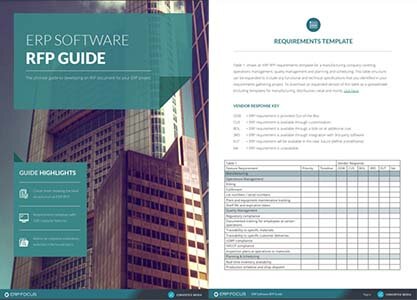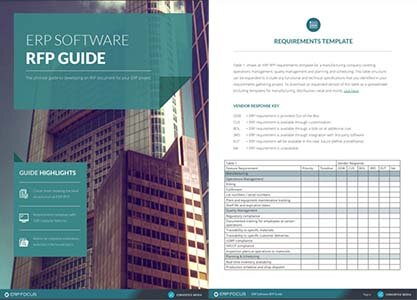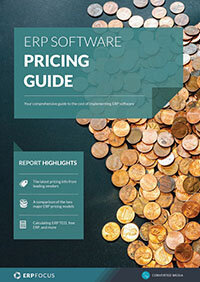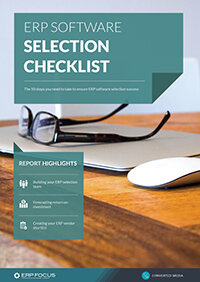Considering specialty ERP requirements during selection
In general terms, Enterprise Resource Planning (ERP), can be represented as one or more business platforms offering clusters of integrated modules ranging from accounting and inventory management processing to highly-granular commercial intelligence data-mining. While these module descriptions seem to be straightforward enough, when it comes to industry sectors that demand more than just the taste of vanilla, some systems are more specialized than others.
To offer a bit of a comparison, here’s a short discussion on ERP operations that apply directly to specialty industries. However, before we start listing the who’s and what’s associated with these business segments, it’s usually useful to understand what particular requirements drive their needs.
Why is it important to consider specialty requirements?
In order to understand the value of a particular digital platform, you must first consider how it is going to be used; or in simpler terms, what that system will need to do in order to put more revenue on an enterprise’s bottom line. This primary validation point is typically guided by various requirements that formally compare just how a company works now, and how easily a new digital system might be utilized to ‘do better’ later.
In the case of specialized industries, however, utilizing a plain Jane approach is simply not good enough, since regardless of typical processes such as GAAP accounting or static inventory management, these business sectors also usually involve other, more critical, dependencies throughout their operating envelope. Let’s take a look at some of these business processes, and consider how their requirements differ than the norm.
ERP feature requirements specialty businesses may have
Pharmaceutical manufacturing: in this case, while most other manufacturing processes are common with general manufacturing requirements, there are a host of regulatory compliance issues at play. Some of these include the tracking and monitoring of national compliances relating to;
- 2002’s Bioterrorism Bill
- Sarbanes-Oxley (SOX)
- Hazard Analysis Critical Control Point (HACCP)
- Various nationalized management policies associated such as Good Management Practices (GMP).
Electronics manufacturing: in this sector, particular production and operational monitoring requirements apply. Some of these elements include;
- Kit/Assembly production monitoring
- Part Number/Serial Number management
- Warranty Tracking
Consumer packaged goods: in this segment, manufacturers face particular challenges in terms of balancing and managing various sales and inventory components. Some of these elements include;
- Change monitoring related to demographic turbulence
- A need to regularly refresh customer-driven packaging programs
- Ad hoc shelf-space balance demands
- End-to-end production line optimization
- Domestic versus global supply-chain monitoring
- Business intelligence tracking when compared with seasonal sales-trend forecasts
The aforementioned business types represent only a small sampling of the constellation of specialized companies that require more detail than simple processes to make their enterprises’ more efficient. In general segment terms some others include:
- Defense
- Agriculture
- Chemical production/manufacturing
- Automotive
- Food and Beverage
- Building and Construction
- Commercial Property Development
- Lifesciences
- Healthcare Management
- Medical Device Production
- Advanced Technologies
- Robotics
- General Aviation
Thankfully, today’s ERP market affords each of them the necessary flexibility and granularity to get the job done right the first time at a minimum of cost.
Free white paper

ERP Software RFP Guide & Template
The comprehensive guide to developing an RFP document for your ERP project

Featured white papers
-

ERP Software Pricing Guide
Get the latest pricing information on over 80 popular ERP systems, and learn how to budget for your ERP project in our free guide
Download -

60-Step ERP Selection Checklist
Get the comprehensive checklist for your ERP selection project
Download -

ERP Requirements template
Plan your ERP selection using our requirements template with 100 features in an editable spreadsheet. Include special requirements and extra detail in this exclusive template.
Download
Related articles
-

The best ERP systems for process manufacturing
Consider these ERP systems when selecting your next process manufacturing ERP
-

Secret KPI: Why Your ERP Implementation Team Matters More Than Software
Learn how Godlan ensures successful ERP implementation for manufacturers with proven strategies &...
-

5 ERP pricing definitions you need to understand
Have you mastered the ERP pricing lexicon yet? Getting to grips with these five definitions is a ...

